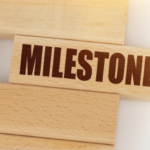Looking at burnout and depression among rheumatology trainees—based on pre-COVID survey responses, about 40% of first-year fellows had at least one symptom of burnout and 13% screening positive for depression.
“We have overcome some incredible challenges,” Dr. Leverenz said, “but burnout looms large.”
What Are We Doing?
A through line of Dr. Leverenz’s presentation was the focus on competency-based medical training (CBME) and the different ways of measuring competency. In the U.S., he pointed to the updated Accreditation Council for Graduate Medical Education (ACGME) Milestones 2.0 in pediatric rheumatology, which is similar to Milestones 2.0 in adult rheumatology in terms of process and outcomes.2
Europe also has come out with new competency-based standards. The EULAR-Union Européenne des Médecins Spécialistes (UEMS) standards for training rheumatologists define key areas of competency, including quality safety, ethics and professional behavior, communication, health policy and advocacy, teaching and learning, research, leadership, management and teamwork.3
Dr. Leverenz showed a comparison of EULAR-UEMS standards with adult rheumatology ACGME Milestones 2.0, noting the similarities between the two for competency-based training. He also highlighted some slight, mostly verbiage, differences. Examples: What U.S. rheumatology calls a core competency, the Europeans call a domain. What the U.S. call a sub-competency, the Europeans call a core theme. The main difference, he noted, is that the European standards do not grade milestones from 1–5, but simply state what is expected in terms of competency.
“It’s just interesting to see the process by which we may go about finding what competence is in different contexts,” Dr. Leverenz said.
One study that raises questions about competency looked at two different measures of competency and patient outcomes. The study looked at whether an association exists between competence defined by milestones and patient outcomes vs. competence assessed by board examination scores and patient outcomes. The study used data from more than 400,000 hospitalizations from 7,000 physicians and recent graduates working as hospitalists.4 Although no association was found between milestone ratings and seven-day mortality and seven-day readmission (i.e., the patient outcomes), significantly better patient outcomes were seen in physicians who scored high on board exams.
Where Are We Going?
Going forward, Dr. Leverenz pointed to two main areas of focus in rheumatology training gleaned from looking at medical education in general: working in a safe learning environment and optimizing assessments. Artificial intelligence was a third area also mentioned, but only briefly.



